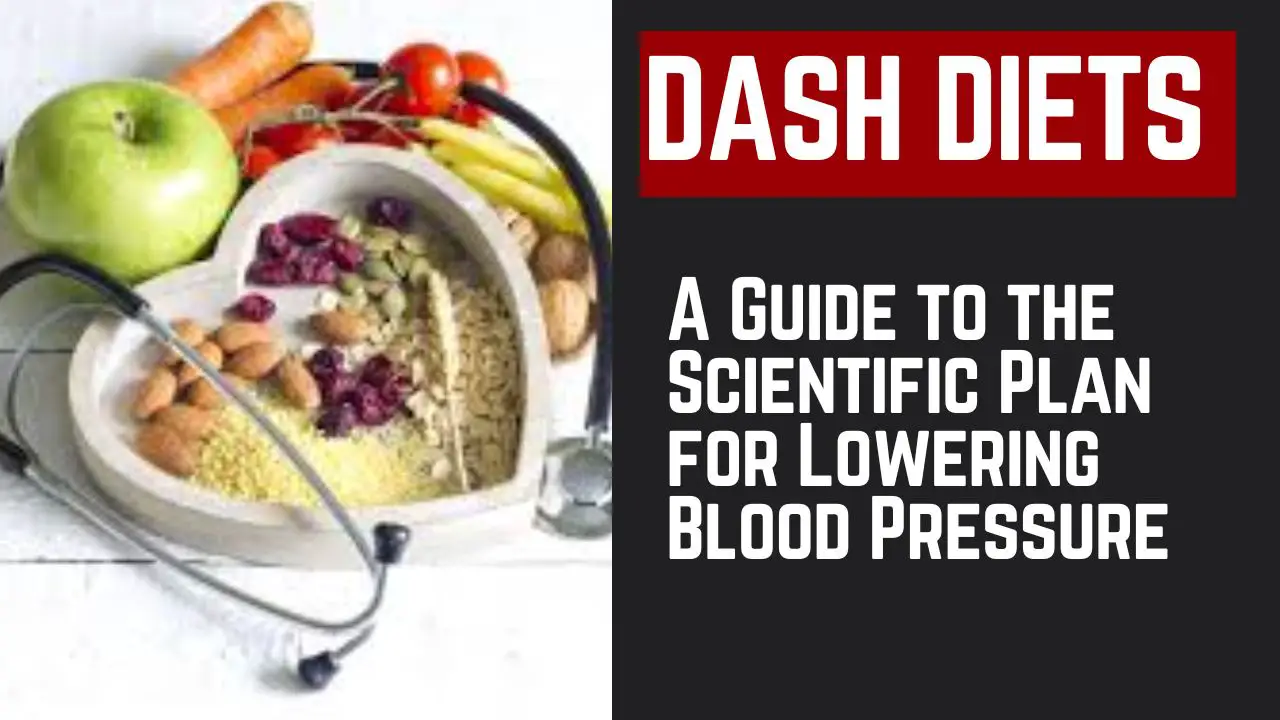Physical Address
304 North Cardinal St.
Dorchester Center, MA 02124
Physical Address
304 North Cardinal St.
Dorchester Center, MA 02124

The DASH diet, which stands for “Dietary Approaches to Stop Hypertension,” is a special way of eating that scientists made to help people with high blood pressure (hypertension). High blood pressure can be really bad for your heart and can even cause strokes and other health problems. The people at the National Heart, Lung, and Blood Institute (NHLBI) created this diet. People like it because it really works to lower blood pressure and make your heart healthier. In this article, we'll explain the main ideas, good things about it, and easy tips for doing the DASH diet.
High blood pressure, or hypertension, arises when there's a constant elevation in the pressure of blood pushing against the walls of arteries. This condition strains the heart and harms blood vessels, potentially leading to serious health complications such as heart disease, strokes, and kidney problems. Blood pressure gets measured using two numbers: systolic (the pressure during heartbeats) and diastolic (the pressure between beats). Usually, normal blood pressure is around 120/80 mm Hg. Hypertension is diagnosed when readings consistently exceed 130/80 mm Hg. Lifestyle modifications and medications can assist in controlling high blood pressure and reducing associated risks.

The DASH (Dietary Approaches to Stop Hypertension) Diet is firmly grounded in scientific research. Several key scientific findings underpin the effectiveness of this dietary approach in reducing high blood pressure and promoting heart health:
Excessive salt consumption is a well-known contributor to high blood pressure. The DASH diet suggests limiting daily sodium intake to a maximum of 2,300 milligrams (mg) and aiming for an even lower target of 1,500 mg for individuals with hypertension.
Fruits and vegetables, central components of the DASH diet, are high in potassium. Studies indicate that potassium helps relax blood vessel walls, lowering blood pressure.
The DASH Diet emphasizes a balanced intake of macronutrients, including a focus on lean proteins, whole grains, and low-fat dairy. This balanced approach contributes to overall heart health by reducing the risk of coronary heart disease.
Nuts, seeds, and legumes, which are part of the DASH diet, contain healthy fats like monounsaturated and polyunsaturated fats. These fats can positively impact blood pressure and heart health.
Beyond immediate blood pressure reduction, research indicates that the DASH Diet, when adopted as a long-term eating pattern, can significantly lower the risk of heart disease and stroke.

Embrace a diverse range of foods. Aim to include various fruits, vegetables, and whole grains in your daily meals. This not only ensures you receive a wide spectrum of essential nutrients but also keeps your meals interesting and enjoyable.
Be conscious of portion sizes. Even though you're consuming healthy foods, overeating can still lead to excess calorie intake. Use measuring cups or visual cues (like a palm-sized serving of protein) to help control portions and avoid excessive calorie consumption.
Familiarize yourself with food labels to track your sodium intake. Opt for products labeled as low-sodium or sodium-free whenever possible. This practice helps you stay within the recommended sodium limits.
Preparing your meals at home gives you greater control over ingredients and cooking methods. It allows you to make healthier choices and avoid the excess sodium often found in restaurants and processed foods.
Processed and packaged foods can be high in sodium, saturated fats, and added sugars. Minimize your consumption of these items and focus on whole, unprocessed foods.
Choose water as your primary beverage. Sugary drinks can add unnecessary calories and affect blood pressure. Limiting your consumption of sugary beverages is in line with the DASH Diet's principles.
In conclusion, the DASH Diet, which stands for Dietary Approaches to Stop Hypertension, is a scientifically-backed dietary plan created by the National Heart, Lung, and Blood Institute (NHLBI) to address high blood pressure, often referred to as the “silent killer” due to its hidden dangers. Through strategies like reducing sodium intake, prioritizing nutrient-dense foods, and promoting a well-balanced diet, the DASH Diet has demonstrated its effectiveness not only in reducing hypertension but also in improving overall heart health. By adhering to the principles of this diet, individuals can proactively lower their risks of heart disease, stroke, and related health conditions, ultimately leading to a longer and healthier life.
By following the principles of the DASH Diet, individuals can proactively lower their risk of heart disease, stroke, and other health issues, ultimately leading to a longer and healthier life.
The DASH Diet doesn't require calorie counting. Instead, it focuses on food choices, portion control, and nutrient-dense options.
Yes, the DASH diet allows for delicious and satisfying meals. Herbs, spices, and other seasonings can be used to enhance flavors without adding excessive sodium.
While the DASH Diet encourages a balanced intake of many foods, it also recommends limiting high-sodium, high-sugar, and high-saturated-fat foods, including processed snacks, sugary beverages, and fatty cuts of meat.